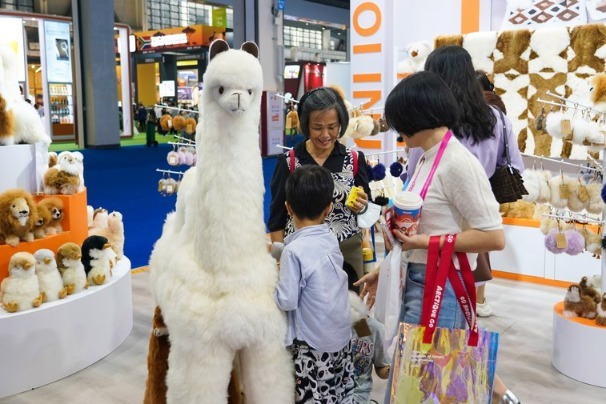China-ASEAN cooperation to get a boost

China and ASEAN will strengthen cooperation in many areas, and explore the great potential for cooperation between Hainan province and ASEAN countries in tropical agriculture, guest speakers said at a sub-forum held on Wednesday during the Boao Forum for Asia Annual Conference 2023.
"The dialogue focuses on China-ASEAN tropical agriculture cooperation, which matches the theme of the year," said Xie Jing, vice-governor of Hainan, in an address to the forum.
"The Hainan free trade port has served as a hub between the Chinese mainland and ASEAN, the two most active markets worldwide. Hainan's location also makes it first and foremost when it comes to the China-ASEAN partnership," Xie said.
Zero tariffs, rules of origin and value-added processing policies could be included in both the free trade port and RCEP systems to promote exchanges of goods and production factors between China and ASEAN and realize deeper integration of regional industrial, supply and value chains, Xie said.
The ASEAN-China Summit last year designated 2023 as the Year of Agricultural Development and Food Security Cooperation between China and ASEAN.
China mainly exports niche products and raw materials, such as fish, garlic, citrus, apples and condiments to ASEAN countries. It imports primary agricultural products such as fruit, vegetable oils, aquatic products, crops and yams, according to Sui Pengfei, director-general of the Department of International Cooperation of the Ministry of Agriculture and Rural Affairs.
"We really need to focus on raising the value level of our trade," he said.
Djauhari Oratmangun, Indonesia's ambassador to China, said he heard that durian is being planted in Hainan this year, and people in ASEAN countries love it. Both sides can take this opportunity to effectively create a consumer market for agricultural products, he said, adding: "We need to further discuss production and processing standards for tropical fruit and other tropical agricultural products."
Qu Sixi, the representative and country director of the United Nations World Food Programme in China, called for China and ASEAN to cooperate more closely and use modern technology to solve the world's food problems.
China has carried out scientific research and technical training, built a demonstration base and engaged in other academic exchanges in ASEAN countries, according to Xie Jianghui, vice-president of Chinese Academy of Tropical Agricultural Sciences.
"Our cooperation focuses on the cultivation of tropical crops and on the cultivation of new varieties, along with green and efficient cultivation and intensive processing of agricultural products — especially the demonstration and construction of key technology bases," he said.
The Chinese Academy of Tropical Agricultural Sciences has cooperated with universities such as Chiang Mai University, the University of Indonesia and the Royal University of Agriculture in Cambodia, plus 25 other scientific and educational institutions.




